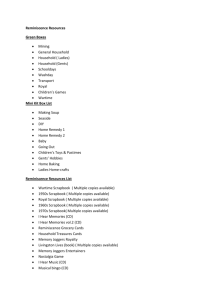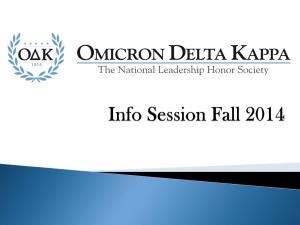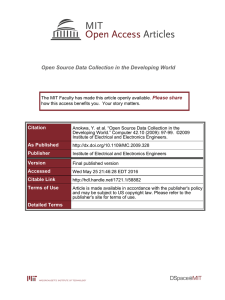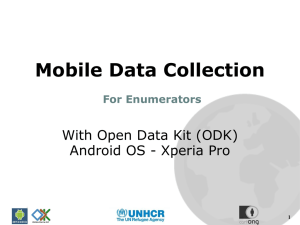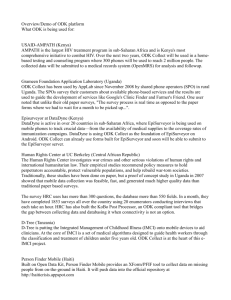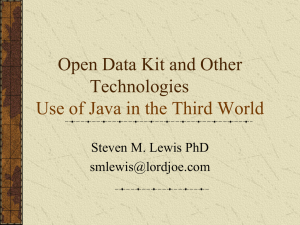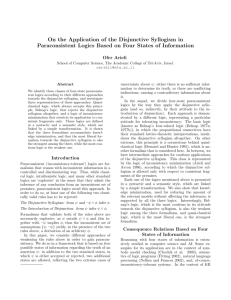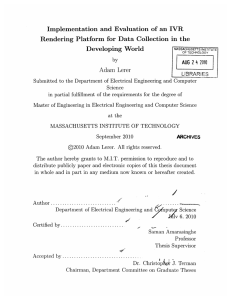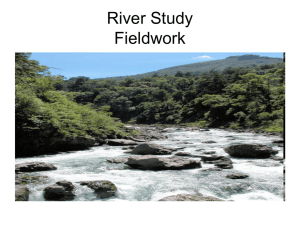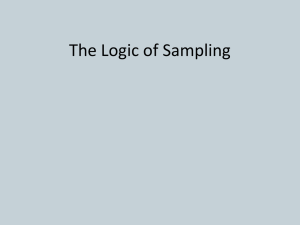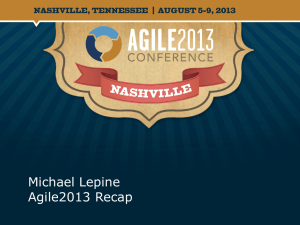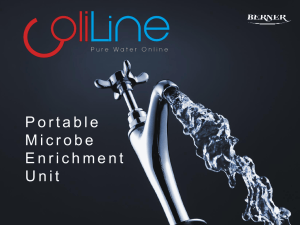ODK_apm2013
advertisement
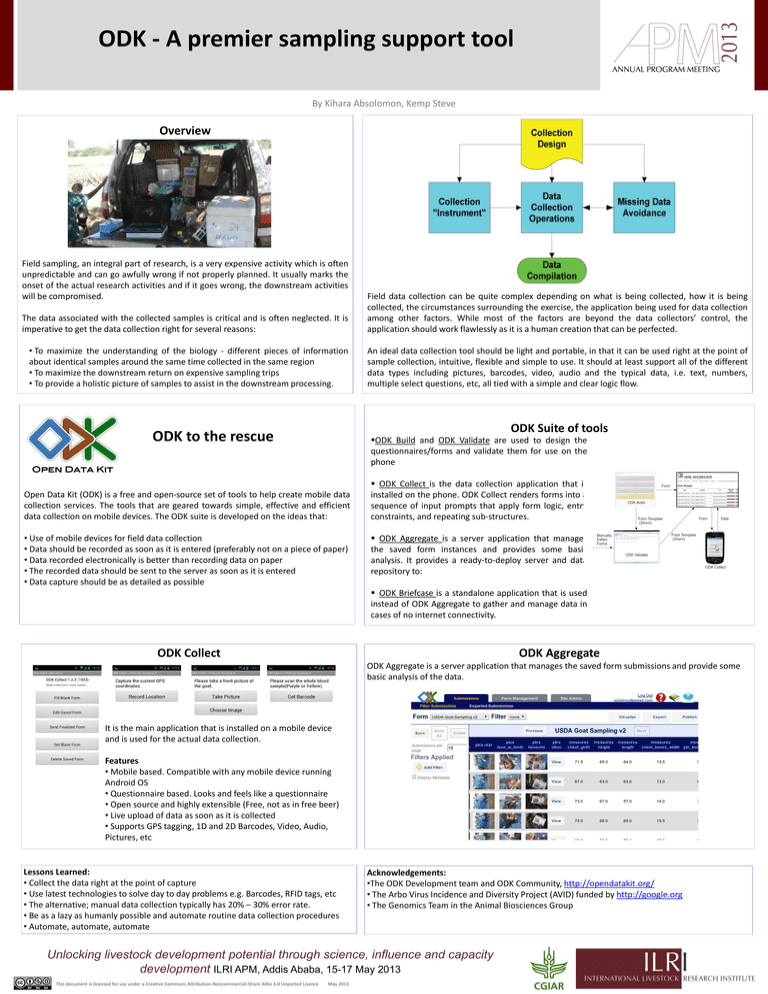
ODK - A premier sampling support tool By Kihara Absolomon, Kemp Steve Overview Field sampling, an integral part of research, is a very expensive activity which is often unpredictable and can go awfully wrong if not properly planned. It usually marks the onset of the actual research activities and if it goes wrong, the downstream activities will be compromised. The data associated with the collected samples is critical and is often neglected. It is imperative to get the data collection right for several reasons: Field data collection can be quite complex depending on what is being collected, how it is being collected, the circumstances surrounding the exercise, the application being used for data collection among other factors. While most of the factors are beyond the data collectors’ control, the application should work flawlessly as it is a human creation that can be perfected. • To maximize the understanding of the biology - different pieces of information about identical samples around the same time collected in the same region • To maximize the downstream return on expensive sampling trips • To provide a holistic picture of samples to assist in the downstream processing. An ideal data collection tool should be light and portable, in that it can be used right at the point of sample collection, intuitive, flexible and simple to use. It should at least support all of the different data types including pictures, barcodes, video, audio and the typical data, i.e. text, numbers, multiple select questions, etc, all tied with a simple and clear logic flow. ODK Suite of tools ODK to the rescue ODK Build and ODK Validate are used to design the questionnaires/forms and validate them for use on the phone Open Data Kit (ODK) is a free and open-source set of tools to help create mobile data collection services. The tools that are geared towards simple, effective and efficient data collection on mobile devices. The ODK suite is developed on the ideas that: • Use of mobile devices for field data collection • Data should be recorded as soon as it is entered (preferably not on a piece of paper) • Data recorded electronically is better than recording data on paper • The recorded data should be sent to the server as soon as it is entered • Data capture should be as detailed as possible ODK Collect is the data collection application that is installed on the phone. ODK Collect renders forms into a sequence of input prompts that apply form logic, entry constraints, and repeating sub-structures. ODK Aggregate is a server application that manages the saved form instances and provides some basic analysis. It provides a ready-to-deploy server and data repository to: ODK Briefcase is a standalone application that is used instead of ODK Aggregate to gather and manage data in cases of no internet connectivity. ODK Collect ODK Aggregate ODK Aggregate is a server application that manages the saved form submissions and provide some basic analysis of the data. It is the main application that is installed on a mobile device and is used for the actual data collection. Features • Mobile based. Compatible with any mobile device running Android OS • Questionnaire based. Looks and feels like a questionnaire • Open source and highly extensible (Free, not as in free beer) • Live upload of data as soon as it is collected • Supports GPS tagging, 1D and 2D Barcodes, Video, Audio, Pictures, etc Lessons Learned: • Collect the data right at the point of capture • Use latest technologies to solve day to day problems e.g. Barcodes, RFID tags, etc • The alternative; manual data collection typically has 20% – 30% error rate. • Be as a lazy as humanly possible and automate routine data collection procedures • Automate, automate, automate Acknowledgements: •The ODK Development team and ODK Community, http://opendatakit.org/ • The Arbo Virus Incidence and Diversity Project (AVID) funded by http://google.org • The Genomics Team in the Animal Biosciences Group Unlocking livestock development potential through science, influence and capacity development ILRI APM, Addis Ababa, 15-17 May 2013 This document is licensed for use under a Creative Commons Attribution-Noncommercial-Share Alike 3.0 Unported Lisence May 2013
